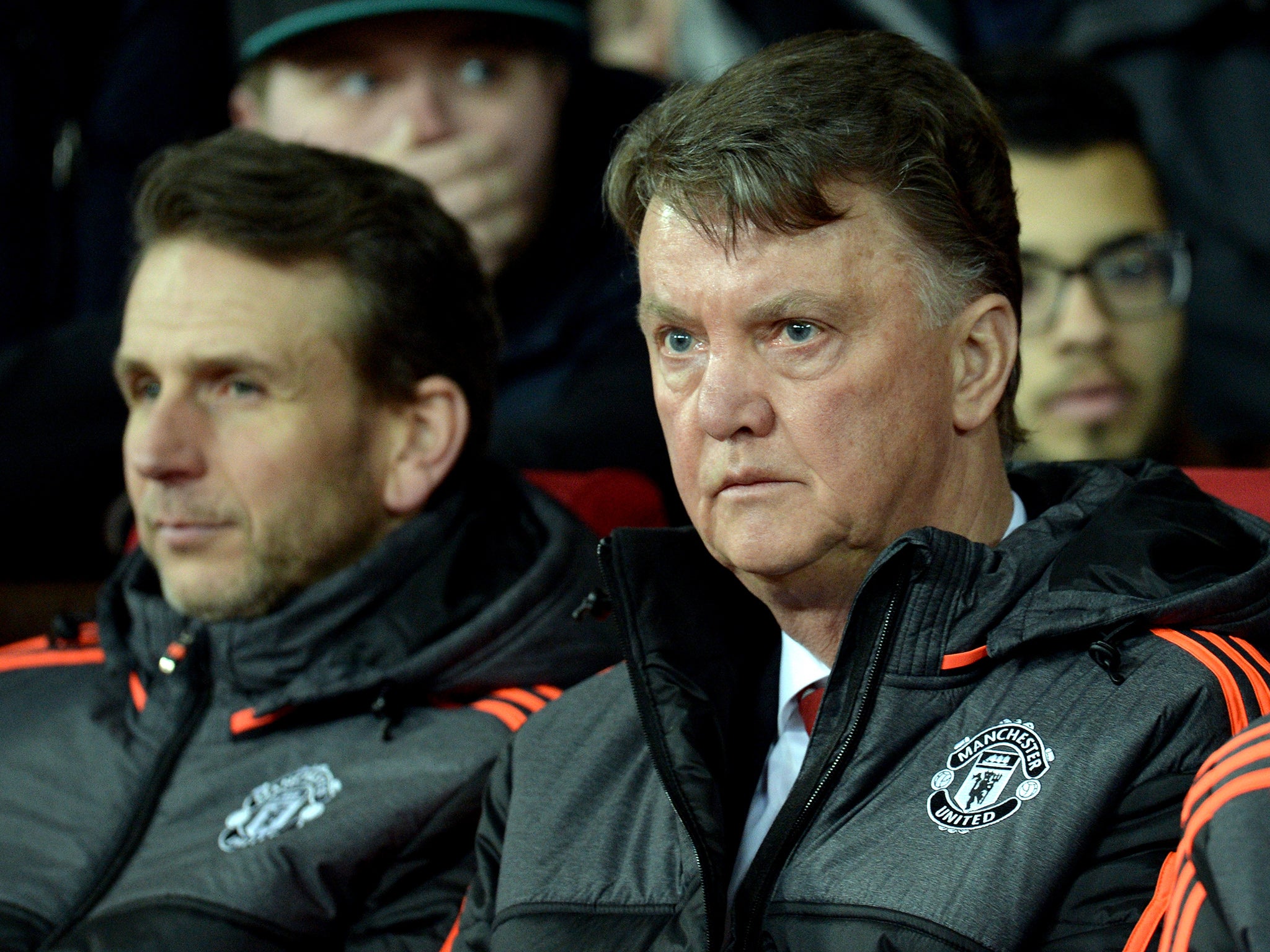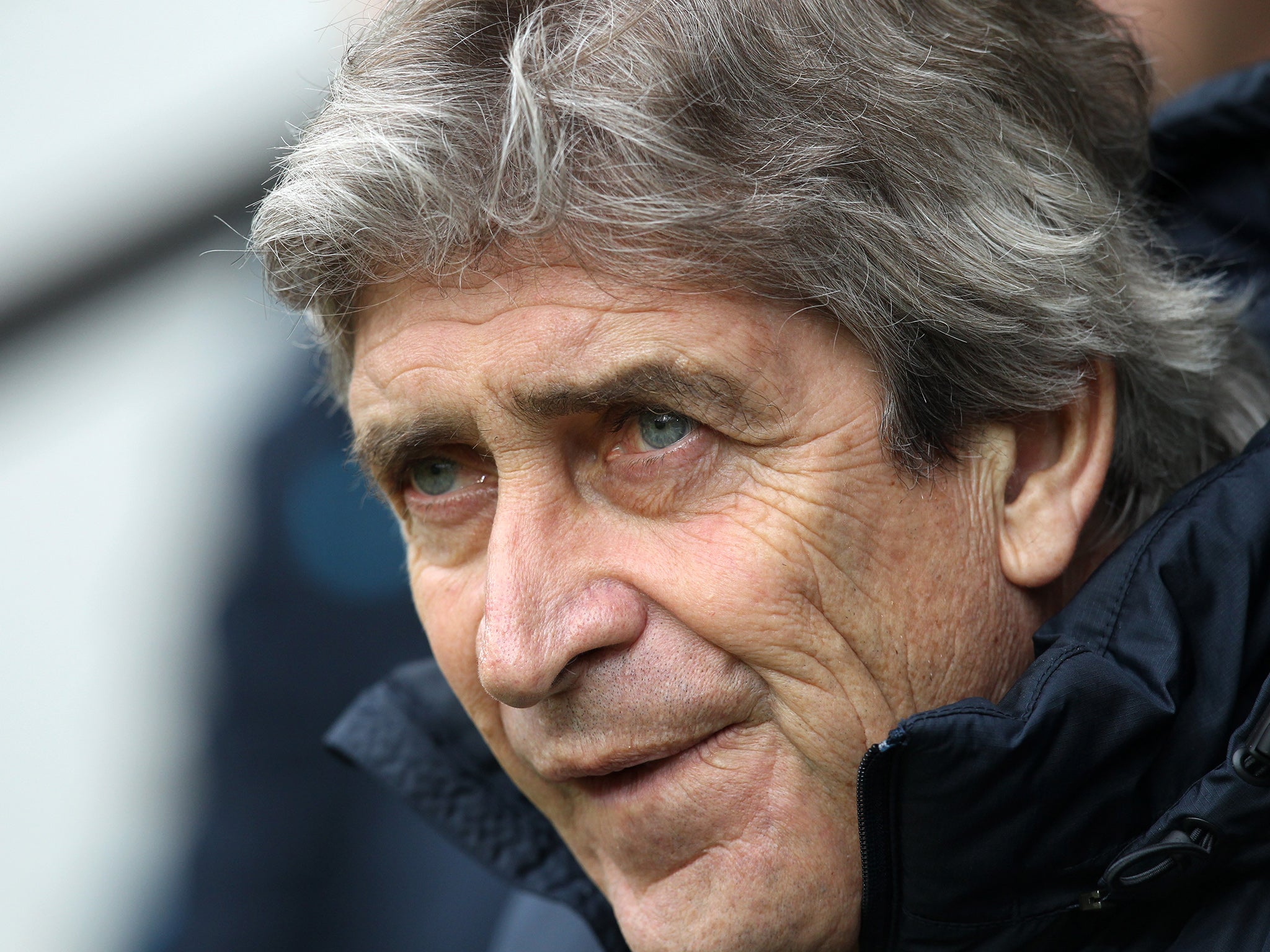Manchester City vs Manchester United preview: Both clubs are mired in mediocrity and only one has an escape plan
After years of being Britain’s leading football city, this season has seen Manchester falter, writes Tim Rich

Your support helps us to tell the story
From reproductive rights to climate change to Big Tech, The Independent is on the ground when the story is developing. Whether it's investigating the financials of Elon Musk's pro-Trump PAC or producing our latest documentary, 'The A Word', which shines a light on the American women fighting for reproductive rights, we know how important it is to parse out the facts from the messaging.
At such a critical moment in US history, we need reporters on the ground. Your donation allows us to keep sending journalists to speak to both sides of the story.
The Independent is trusted by Americans across the entire political spectrum. And unlike many other quality news outlets, we choose not to lock Americans out of our reporting and analysis with paywalls. We believe quality journalism should be available to everyone, paid for by those who can afford it.
Your support makes all the difference.Old Trafford looked what it is, one of the great stadiums of world football. The lights burned down from the great North Stand, that alone can house the capacity of Carrow Road and which now carries the name of Manchester United’s greatest manager. Sir Alex Ferguson won more League titles than the combined totals of Manchester City, Chelsea and Tottenham. As many as Arsenal.
Since they are facing Liverpool, the music has been carefully chosen. It is Manchester music, the city’s hymns.
Love will Tear us Apart, recorded in Stockport, written by Ian Curtis, a Manchester City fan. Dirty Old Town, Ewan MacColl’s song of the canals and gasworks of Salford that became a hit in 1968, the year United were European and City League champions; when George Best and Mike Summerbee were rock-star cool.
There is a pause for a reworking of Country Roads, which happens to be Ferguson’s favourite song, and then the crashing chords of This is the One, released when Manchester was Madchester, the cultural and music capital of England. The teams come out to the flashes of a thousand camera phones. Then Manchester United start to play and it is as if the National Theatre had been hired out for the cast of Emmerdale.
United are not as dreadful as they were in the first leg of the Europa League tie but are still a shadow of the club they purport to be. Once Philippe Coutinho glides the ball past David de Gea, United require three goals in 45 minutes to go through.
It is a similar equation to the one Liverpool once squared against Olympiakos. But then they were driven forward by Steven Gerrard and, despite the kind of lavish spending that was never sanctioned under Ferguson, the Manchester United of Louis van Gaal have nobody with that mettle.
Outside the dressing rooms, where no-one from Manchester United wants to share their thoughts with the media, Roy Keane, who had just described his former team as playing like “strangers”, stalks through the corridors.
Strangers they had been after nearly two years of Van Gaal’s ‘philosophy’; two years of endless meetings about tactics. When in 1999, Manchester United had to win their final game of the season, against Spurs, to prevent Arsenal winning the title, all Ferguson had to do to motivate his team was to poke his head around the dressing-room door and say: “Lads, it’s Tottenham” – with all that implied.
On Tuesday night, Manchester City had also staged a European fixture, a dreadful, forgettable game with Dynamo Kiev in the Champions League. The music was incidental. In the early Abu Dhabi years they would play the weirdly appropriate I am the Resurrection. Swathes of the Etihad Stadium were empty but it hardly mattered, Manchester City had won 3-1 in Ukraine and the second leg was a formality.
Only in comparison with the other members of the ‘Big Four’ have Manchester City performed well. They have won the League Cup and are the last English team standing in the Champions League but you would have to go back to November 2014 to find the last Premier League team of any real consequence they overcame at the Etihad Stadium – and that was Manchester United.
Nevertheless, on the final whistle, Joe Hart had embraced Pablo Zabaleta and both men wore dazzling smiles, the kind not associated with goalless draws. “It would have been easy to have trudged off after drawing 0-0 and not particularly lighting the place up but, at the same time, I am a kid from Shrewsbury who’s in the quarter-finals of the Champions League,” said the England goalkeeper.
Hart is asked if the country might start getting behind Manchester City as they carry the Premier League’s flag in the European Cup. “I am not expecting miracles,” he replies with a grin. “I do think people will keep an eye on Manchester City. But it’s the kind of club where I don’t think any of us are going to get any praise unless we do something quite special.”

Hart is dressed in a City in the Community T-shirt, at Higher Openshaw Community School. Openshaw is a place of red-brick terraces not far from the Etihad Stadium and Hart is leading the primary-age children in a series of games designed to get them to play as well as watch sport.
When he comes back to the headmaster’s room, it is pretty clear that Mr Dent is a Manchester United fan. There is a copy of Ferguson’s book, Leading, on one of the shelves and a picture of Wayne Rooney’s spectacular overhead kick that won United the Manchester derby at Old Trafford in 2011, the year United and City finished first and third in the Premier League.
It was the first season since the late 1960s when the derby looked as if it might decide the title. Today’s game is at most for a top-four finish. Both clubs are enduring a blip but City have expanded their stadium, built a vast academy complex and secured the succession by hiring the world’s best manager, Pep Guardiola. Theirs is a blip, United are enduring a recession.
At Old Trafford there has been wild spending – Angel Di Maria and Radamel Falcao hired and flogged, bids for Neymar and Gareth Bale – and still nothing that looks like a football team. The debate is still whether Ryan Giggs should be allowed to succeed Van Gaal or whether they take the short-term option with Jose Mourinho, a man mistrusted by some directors at Old Trafford.
Hart’s first derby was the one in February 2008 on the 50th anniversary of the Munich disaster. “It was an amazing occasion, Manchester really coming together, showing itself to be really close, very respectful and then topping it off with a great game of football,” he said. “Globally, this derby doesn’t carry the same swing as the League Cup semi-final in 2010 or the League game in 2012 but for me it’s the most important one because it’s up next.”
As the man whose photographic portfolio includes iconic images of Joy Division, Morrissey and Colin Bell, Kevin Cummins has had a deep involvement with Manchester’s music and its football.
As someone who documented the final season at Maine Road you might expect him to mourn the passing of the old Manchester City and the arrival of the men from Abu Dhabi. When Kerry Packer revolutionised cricket with matches staged under sodium floodlights, Mike Brearley, then England captain, said he preferred “the tramp steamer with its cargo of pig iron to the monstrous supertanker, hurriedly constructed”.
Like the vast majority of City supporters, Cummins does not feel the same way. “There was a time when City’s fans would have been happy with a six-point season, provided those points were against Manchester United,” he said. “My favourite derby was September 23rd, 1989, when we beat them 5-1 and the United fans were singing ‘Fergie Out’ and we were singing: ‘Fergie In’. How wrong we were.
“Football, when I was with Joy Division from 1977-1979, was horrible in Manchester, it was about the music. If the musicians supported a club, it was City because they were edgy, less corporate and not as successful. Ian Curtis was interested in football but nobody else in Joy Division was. When I was living in London, you’d get invites to all sorts of music gigs and when I said I’d be going back to Manchester to watch football, you’d get gasps of astonishment.
“When Peter Swales was running Manchester City, he was obsessed with matching United. It was all that mattered to him. But this is different. The owners are here for the long haul.
“In comparison to Roman Abramovich at Chelsea, they have invested huge amounts in the infrastructure around the city and in young footballers.” He pauses to make a statement that not even Malcolm Allison in his pomp would have uttered. “It is inevitable that Manchester City will win the European Cup.”
Join our commenting forum
Join thought-provoking conversations, follow other Independent readers and see their replies
Comments